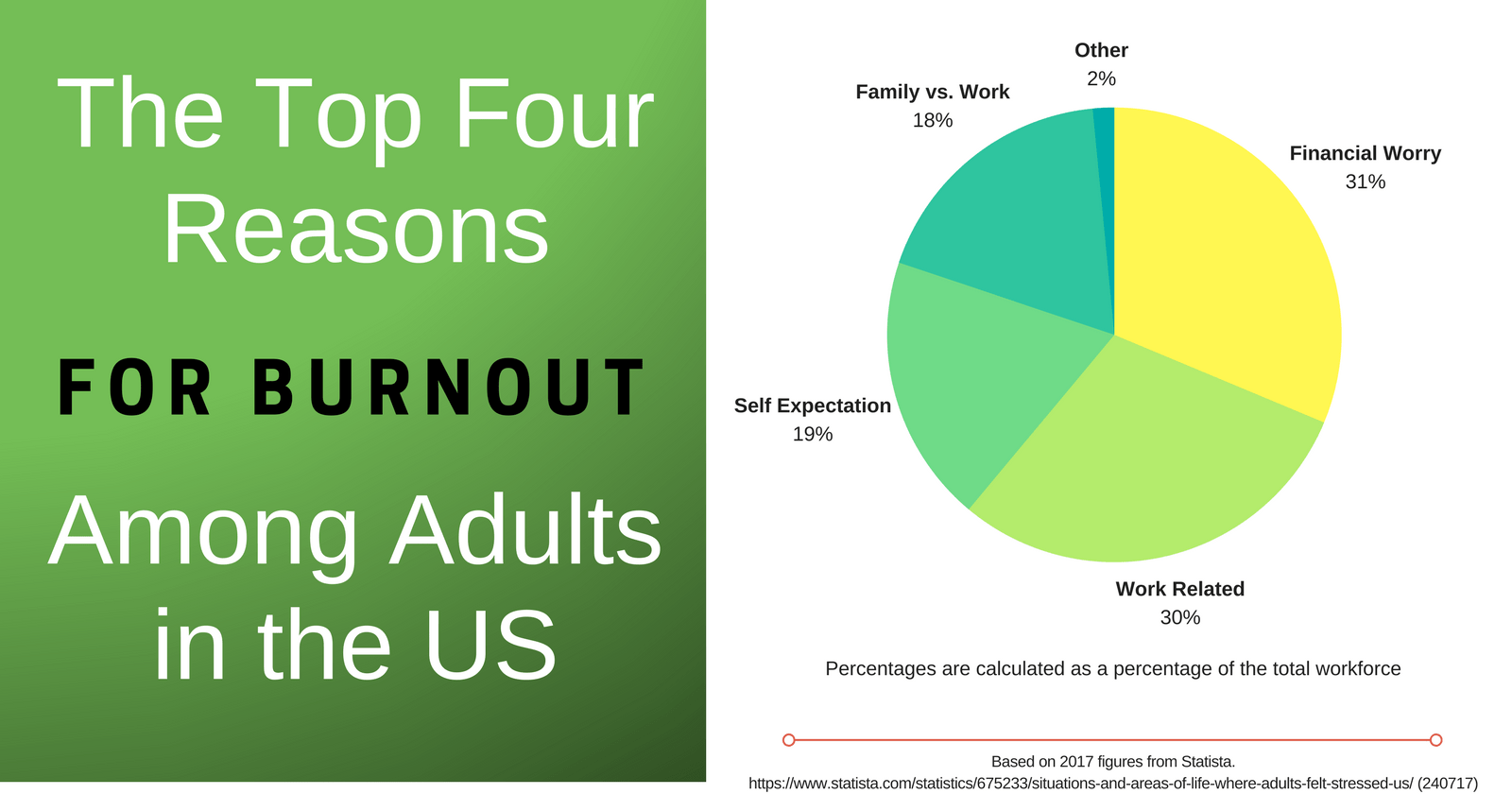Organizations are demanding ever higher performance from their digital marketing teams. People are trying to comply, but the usual method – putting in longer hours – has backfired.
Employees are becoming exhausted, disengaged, and sick. And they’re defecting to healthier job environments.
The obvious difficulty here is that time is not an infinite commodity. You can only work so many “longer hours,” before you run out of hours altogether.
Why is Burnout So Common in Digital Marketing?
Meet Andrew. Andrew is 46 years old and works as an SEO and digital marketing consultant. Up until recently, Andrew was working 14 to 16 hours a day. Tired and exhausted, he wasn’t able to fully engage with his own family in the evenings and found it difficult to sleep before midnight.
His meals throughout the day were fast food, often eaten in the car or at his desk. His emotional stability, creativity, and temperament had begun to suffer.
Andrew’s experience is not uncommon among those who work in the digital marketing industry.
Emails, notifications, phone calls, client demands and staff training demand our attention and exhaust the limited time we have each day.
Using the figures on stress related experiences–a precursor to burnout–from Statista, we can see that the top four reasons are all related to work. Whether it’s the money, we are earning from our work, our own perfectionist expectations or anxiety in trying to balance work and family life.

Andrew’s experience is common among those running or working as freelancers in search or social media marketing. The result is declining creativity and declining levels of interaction compounded by increasing distraction and damaging routines.
To survive long term in search and social media marketing, agencies and freelancers need to shift their focus from time management to resource management. And the number one resource that anyone working in this industry has is themselves (and their staff).
And here is the really interesting thing: Putting in fewer hours and more effort into your emotional and psychological well-being actually results in greater productivity.
1. More Sleep, Greater Clarity
In a 2011 Stanford research project, research facilitator, Cheri D. Mah discovered that when male basketball players were able to sleep 10 hours a night, their performance on the court was significantly improved. Among the curious findings: free-throw and three-point shooting each increased on average by almost 10 percent.
One of the ways you can get back into an, “early to bed early to rise routine,” is by getting up an hour earlier each day. Giving your body time to adjust is going to help restore the natural sleep rhythms that increase clarity and creativity during the day.
Diet plays a part here as well. Those who want to survive over the long haul in online marketing would be encouraged to reduce their food and alcohol intake after 7:30 p.m.
Ultimately, the less you put in your mouth after the sun goes down, the better.
2. More Time Off, More Productivity
Not only is more sleep shown to make us more productive in the workplace, but more time off work has revealed similar results.
Holidays are similarly beneficial to sleep. In 2006, Ernst & Young did an informal research project among its staff. They wanted to find out what would happen if each staff member was given additional hours of vacation.
What the research showed was that for each additional 10 hours of vacation a staff member took, their end-of-year productivity increased by 8 percent.
Being able to switch off text entails discipline. Be willing to turn off your computer and put down your work and walk away from the office is habit forming.
You want your freelance business or agency to grow and expand. You want it to succeed and be able to engage more staff and create new services down the track. But that isn’t going to happen by simply increasing hours worked or even staff numbers.
Everyone feels the pressure to deliver search marketing results – whether it’s the client, provider, or stakeholders.
We’re all under pressure to improve organic search positions, boost ROI for big spending clients, and meet search and social media marketing targets. They have deadlines, and they have clients who demand excellent results.
The solution to delivering greater results won’t come through longer hours (you want to avoid burnout, not rush toward it!). It will come through developing better schedule habits.
3. Get Physical
In Andrew’s case (cited above), he began to make changes by adjusting his physical routine. Waiting 30 minutes earlier each morning, Andrew begins by doing 20 minutes of gentle stretching and exercising.
He then follows this up with some breakfast with the family and took a walk around 3 p.m. for 30 minutes.
The small change was enough to revolutionize his work and family life.

The cost of employees’ increased number of sick days and the higher number of staff turnover are good reasons to adopt better physical routines in the workplace.
Not only should you consider developing these habits yourself but you should also encourage these habits among your staff and allow your staff to adopt new routines in their own life.
4. Change Your Environment
We’ve seen Google make innovative changes to its workplace environment with good results. But those changes should go beyond color and leafy green jungle work stations.
Your work environment is a major factor in workplace health and safety, as well as employee longevity. It isn’t about being trendy or progressive. Nobody here cares if you have a ping pong table and a hammock next to you standing work desk.
What matters is the view.
Can you see beyond your monitor? What can you see?
There is a reason why those who spend all day in front of a monitor or gaming screen have no vision, no creativity, and no long-term planning ability.
Those who live in small spaces and work in small spaces have a hard time developing long-term vision.
The farther you can look, the farther you can see. If you can’t see far from your office, then allow time each day to get away from your desk and go for a walk where you can see. If you’re in the city, climb a building and look out over the roof tops.
Beyond the visual space, consider moving every 90 minutes to a different space – even if it’s only for 5 minutes. I know some people who have mid afternoon baths and then go back to work. A lot of clarity comes when you are splashing around in the water.
5. Implement a Six-Hour Work Day
In Sweden, changes in workplace hours have been shown to increase productivity.
Are you brave enough to try this in your own work routine for a month?
The key result of the Swedish experiment is that productivity will typically increase even though the hours have been reduced. It is only fear of decreased productivity that causes agencies and freelancers to resist making the change, or at least experimenting with it.
Of course, there will be times when additional hours are sometimes needed. But are you willing to take the challenge and refocus and realign your schedule with something that is going to result in long term productivity and long term results?
Summary
Time cannot be renewed – it can only be wasted or used productively.
Unlike time, however, our physical, psychological, and emotional strength can be reinvigorated and renewed with proper management.
Our physical, emotional, and mental strength can be exercised into routines and habits that prevent the burn out so common in the world of digital marketing and allow us to thrive over the long haul.
Featured Image Created by David Trounce using Pixabay CC0 License and Canva.


